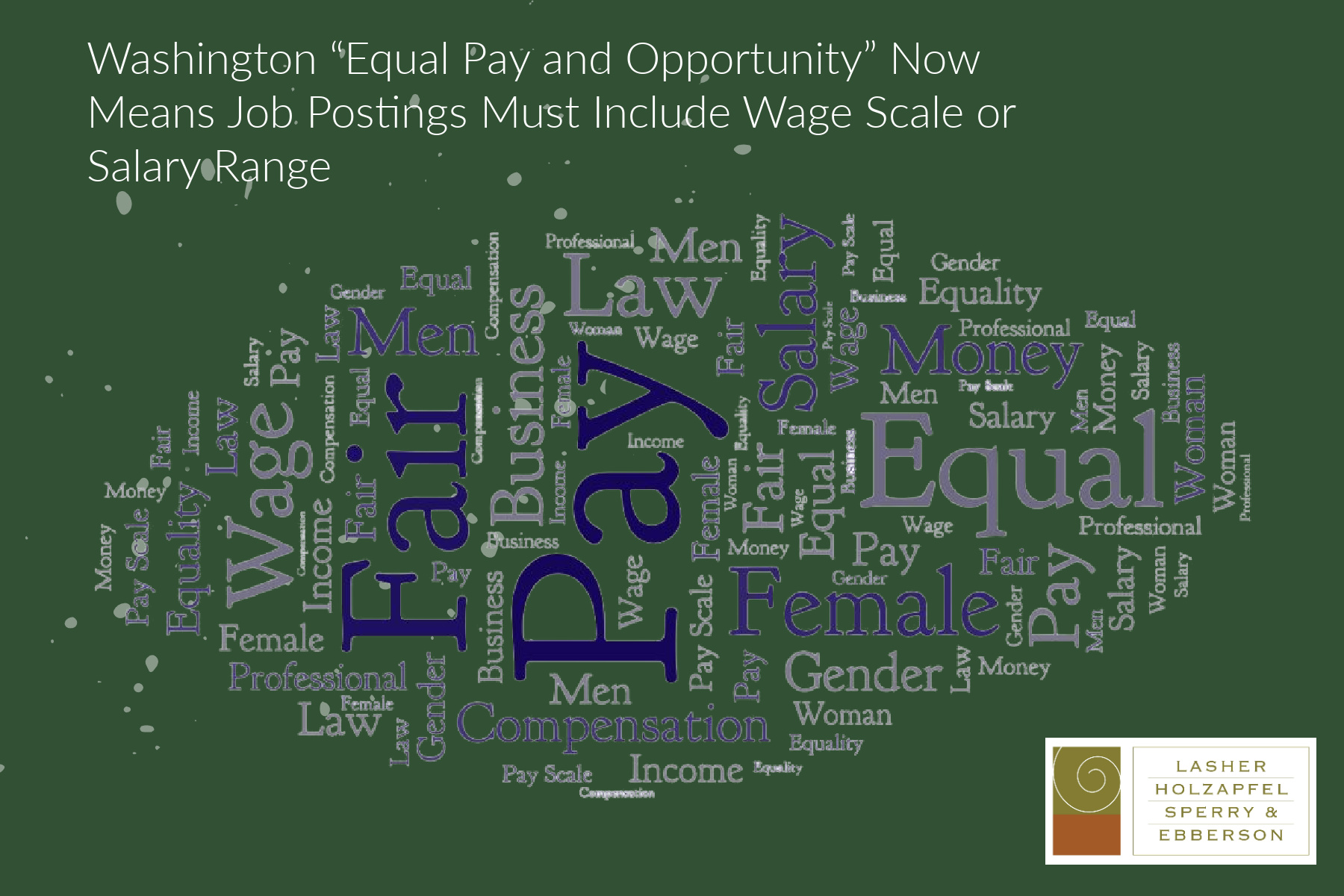Washington “Equal Pay and Opportunity” Now Means Job Postings Must Include Wage Scale or Salary Range

Posted on April 4, 2022 by James Blankenship
Beginning January 1, 2023, many Washington employers will be required to disclose the salary range and benefits in their job postings. Today, Governor Jay Inslee signed Engrossed Substitute Senate Bill 5761, amending the Washington Equal Pay and Opportunity Act to require all employers with 15 or more employees to disclose the wage scale or salary range along with a general description of all benefits and other compensation in every job posting. Washington joins Colorado and New York City as the only jurisdictions, thus far, to require employers to disclose salary ranges in job postings. A number of other cities or states require disclosure of salary information to job applicants at various points during the hiring process, but not a public disclosure in the job posting.
The Washington Equal Pay and Opportunities Act (EPOA), Ch. 49.58 RCW, targets disparities in income and opportunities among workers in Washington, particularly based on gender. The EPOA prohibits wage discrimination based on gender and includes prohibition on career advancement based on gender. Additionally, the EPOA prohibits an employer from retaliating against an employee for asking about the employee’s wages and the reasons for their wage and the lack of opportunities for advancement. The new amendments replace the requirement to provide salary information after an initial job offer. The prohibition on employers seeking wage or salary history from applicants, which was added in 2019, remains.
For employers the new amendments mean they will need to be much more forthcoming about salaries and benefits offered to employees. The days of “salary commensurate with experience” in a job posting will be coming to an end. Employers will need to give thoughtful consideration for the appropriate range they wish to publish to potential employees and competitors. Employers with extensive benefits packages will want to pay attention to the requirement to include benefits and other compensation information. The law requires that employers provide “a general description of all of the benefits and other compensation to be offered to the hired applicant.” This language is identical to the Colorado statute (CRS § 8-5-201(2)) so it is plausible that Washington will develop similar rules interpreting this provision. In Colorado, the rule provides that employers must provide “a general description of all employment benefits the employer is offering for the position, including health care benefits, retirement benefits, any benefits permitting paid days off (including sick leave, parental leave, and paid time off or vacation benefits), and any other benefits that must be reported for federal tax purposes, but not benefits in the form of minor perks.” 7 CCR 1103-13-4.1.1(C). The inclusion of “other benefits that must be reported for federal tax purposes” may provide some guidance for issues such as parking, athletic facilities, and stock options, to name just a few, until Washington promulgates rules on the scope of the benefits description.
Lastly, employers offering remote work opportunities to employees in Washington may be required to comply with the new statute. The statute is limited to employers with 15 or more employees; however, it is not clear if that requirement counts employees working outside of Washington or only those in Washington. Following the passage of the salary disclosure requirement in Colorado, national job postings for remote positions have reportedly excluded Colorado residents to avoid the need to comply with the disclosure requirement.[1] It is likely significant amounts of remote work will continue in the post-COVID job market and employers will need to consider if excluding jurisdictions is a viable compliance plan or if the posting of salary ranges is the new standard.
Understanding and complying with the rapidly changing field of employment law is essential for employers and employees alike. If you need assistance, the Labor and Employment Law team at Lasher is standing by to help.
[1] https://www.denverpost.com/2021/06/26/colorado-remote-work-job-postings-salary-range/

